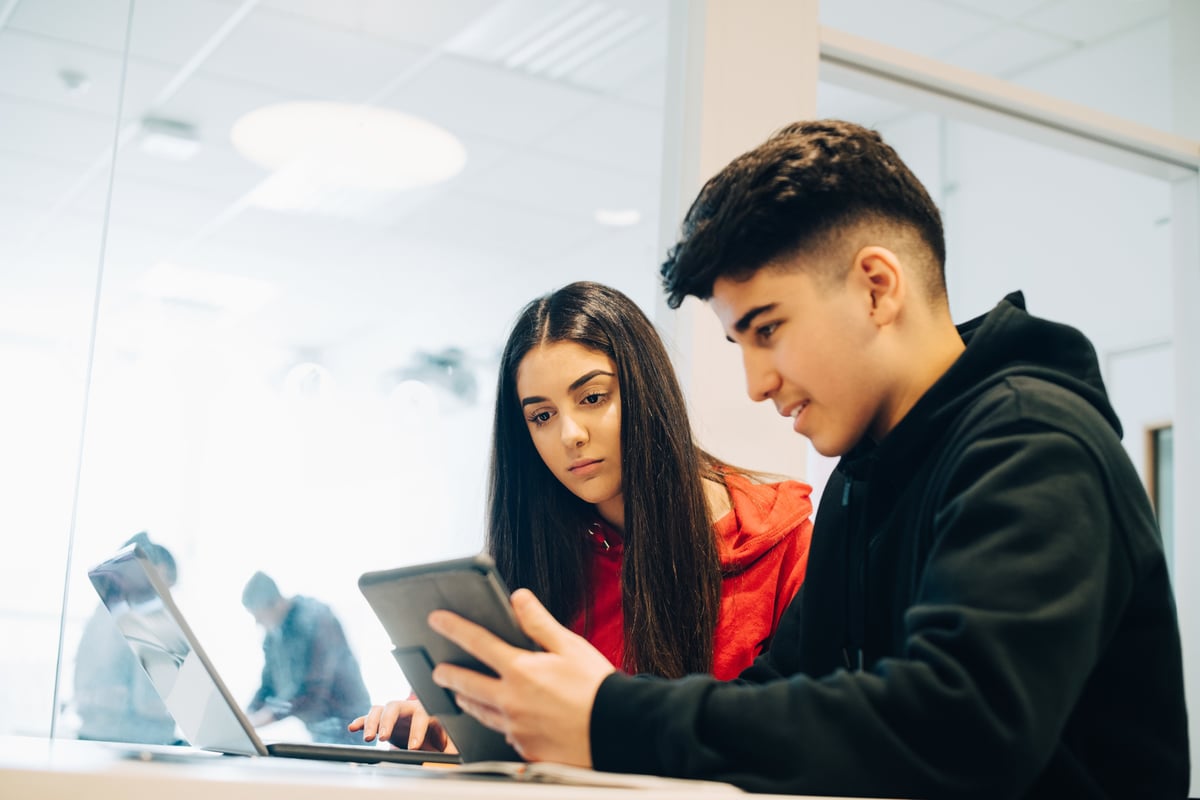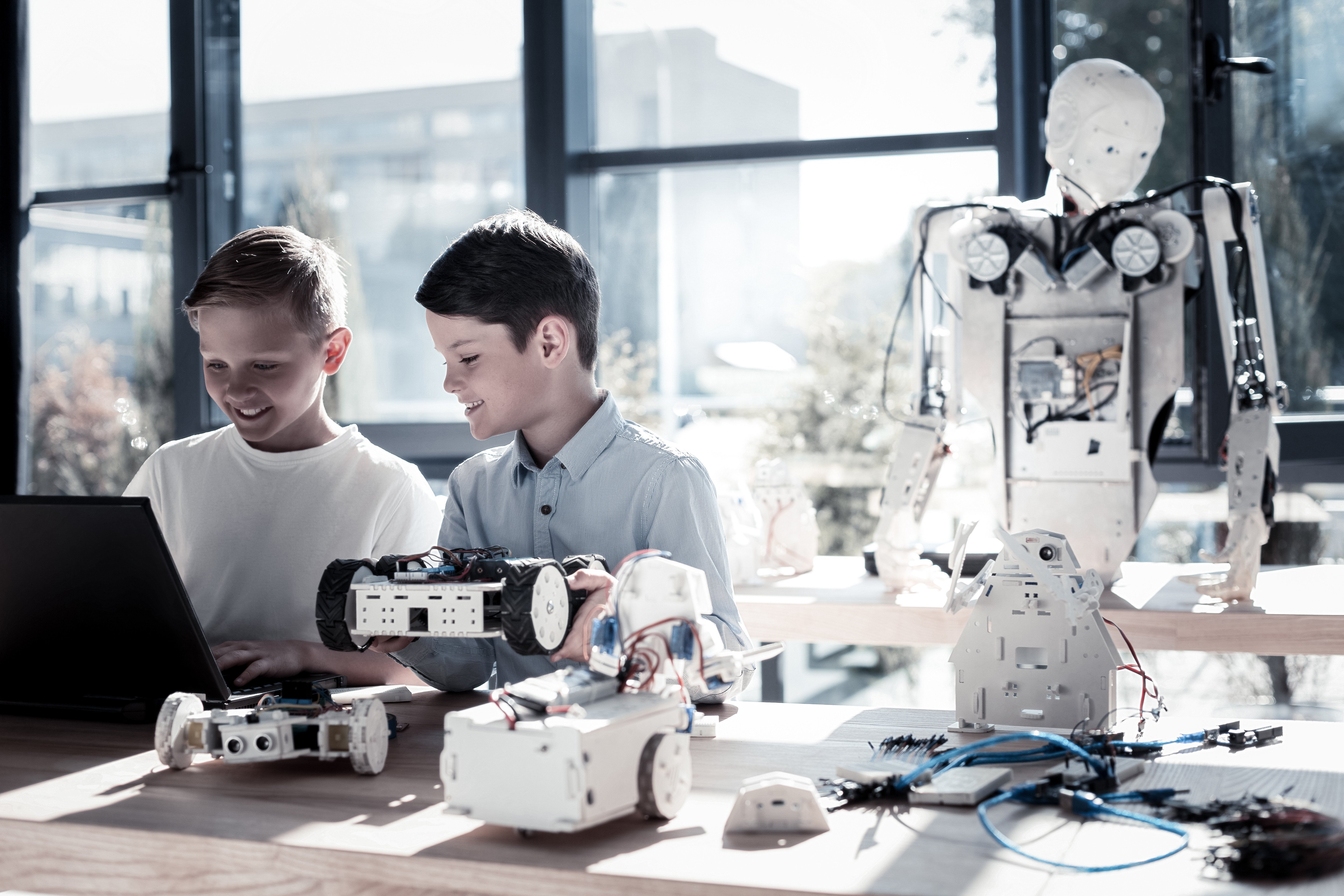Changes in young people's consuming habits
The new generations have very different information consumption habits to those of previous generations. The advent of different technologies and easy access to the Internet gives them access to an unlimited amount of instant information. They mainly use their smartphones and computers to search for and consume information, which has radically changed the way they learn and assimilate knowledge.
This ease of access has made them accustomed to getting immediate answers to their questions through online search engines and social media platforms. They have a preference for short formats such as videos, infographics and concise blog posts. They are also more inclined to consume visual and dynamic information than text. These changes in their consumption habits mean that education needs to be adapted to meet their needs and encourage them to learn.
The importance of adapting Education to new consumption patterns
It is crucial that the world of education adapts to the new ways in which young people consume information, for a number of reasons. Firstly, by taking into account the information consumption preferences of this generation, education must be more attractive and engaging for them. By using media and formats that are familiar to them, such as educational videos or interactive applications, schools can capture their attention and stimulate their interest in learning.

With the internet at their fingertips, young people are now used to obtaining information instantly and navigating quickly between different content. By using more interactive teaching methods and providing easy access to online resources, young people's learning time and understanding of the subjects studied will be optimised and reinforced.
Using media and formats that speak to them and to which they are accustomed fosters their autonomy and their ability to find and evaluate information critically. Teaching them the skills they need to navigate the ocean of information online prepares them for a world where the ability to find reliable information and analyse it is essential. This contributes to their personal development and their ability to participate actively in society.
The benefits of an Education tailored to young people
There are many advantages to an education that is better adapted to young people. Firstly, it encourages their motivation and commitment. By using interactive and attractive teaching methods, education can arouse their curiosity and desire to learn. This encourages them to take an active part in lessons and to invest in their own learning.
What's more, offering them this type of experience means that their individual needs can be better met. Every young person has different preferences and learning styles, and tailoring education to these specific needs maximises their learning potential. This can be done by offering choice in subject areas, using a variety of resources and encouraging creativity.
By incorporating real-life examples and current issues into lessons, young people are shown the importance of what they learn and how it can be applied in the real world. This helps them to feel connected to and involved in what they are learning, which increases their motivation and interest in education.
The challenges of bringing education more into line with today's consumption patterns
While adapting education to the new ways in which young people consume information is essential, it also presents challenges. Firstly, it is important to strike a balance between the use of digital technologies and maintaining a balanced educational approach. Young people need social interaction and appropriate supervision to foster their overall development, and it is essential not to neglect these aspects when adapting education.

Digitising education also requires adequate financial and technological resources. It is important to invest in the infrastructure and equipment needed to set up reliable and relevant learning environments. This can be a challenge for many schools and education systems with limited resources.
Finally, it is essential to train teachers in new teaching and learning methods. They need to be able to take advantage of digital technologies and integrate them effectively into their teaching. This requires ongoing training and support to ensure that teachers have the necessary skills to provide a quality learning experience for young people.
Solutions for more effective and relevant Education
To make education more effective and relevant to young people, a number of solutions can be envisaged. Firstly, it is necessary to integrate digital technologies into classrooms and provide reliable Internet access. This allows teachers to use online resources, interactive tools and virtual learning platforms to enrich young people's learning experience.
Secondly, it is important to develop media and information literacy programmes to help young people develop skills in searching, evaluating and managing information. This helps them to navigate responsibly and critically through the ocean of online information and make informed decisions.
Finally, it is essential to train and support teachers in the use of new technologies and innovative teaching methods. This can be done through in-service training, networks for exchanging good practice and online teaching resources. By providing teachers with the necessary tools and skills, we can ensure that education is of high quality and relevant to young people.


